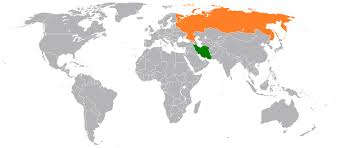Introduction
The Gulf region has been a focal point of global interest due to its burgeoning economies, rich cultural heritage, and strategic geopolitical significance. Qatar and the United Arab Emirates (UAE) are two prominent nations that have garnered attention for their rapid development and various distinctions. Understanding the differences between these two countries is crucial for investors, travelers, and political analysts alike.
Economic Landscape
Both Qatar and the UAE boast robust economies, but their structures and growth trajectories differ significantly. Qatar, with the world’s third-largest natural gas reserves, has a GDP heavily reliant on the energy sector. In contrast, the UAE’s economy is more diversified, encompassing trade, tourism, and finance. According to the World Bank, Qatar’s GDP per capita ranks among the highest globally, reaching approximately $59,000 in 2021, while the UAE stands at about $43,000.
Political Systems
Qatar operates under an absolute monarchy, with Sheikh Tamim bin Hamad Al Thani as the emir. The country’s political framework allows for limited citizen participation. On the other hand, the UAE is a federation of seven emirates, each led by an emir, with a president elected from among the emirate leaders. This results in a more complex but also more pluralistic political environment. The differing political systems influence their international relations and internal governance.
Cultural Aspects
Culturally, both nations are rooted in Islamic traditions but exhibit distinct variations. Qatar has become an increasingly modern cultural hub, known for its initiatives in arts, sports, and education, including the recent hosting of the FIFA World Cup 2022. The UAE, particularly Dubai, is renowned for its cosmopolitan atmosphere, with a mix of cultures and lifestyles due to its large expatriate community.
International Relations
Relations between Qatar and the UAE have been complex, particularly following the 2017 diplomatic crisis when Saudi Arabia, the UAE, Bahrain, and Egypt severed ties with Qatar over allegations of supporting terrorism. In recent times, there have been signs of reconciliation, with diplomatic ties being restored in early 2021, indicating a potential shift towards cooperation.
Conclusion
In conclusion, while Qatar and the UAE share similar foundations as Gulf monarchies with wealthy economies and rich cultural heritages, they distinguish themselves through their political structures, economic focuses, and cultural identities. Understanding these differences is essential for anyone looking to engage with or invest in the region. As both nations continue to evolve, their interactions on both economic and political fronts will remain a point of interest on the global stage.


